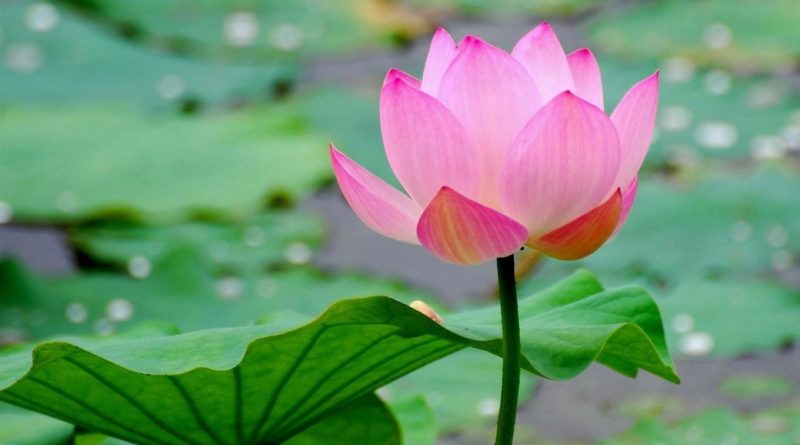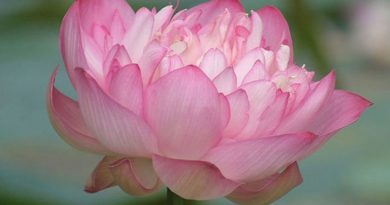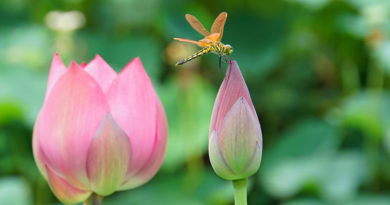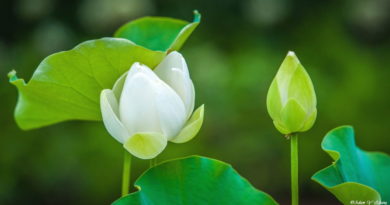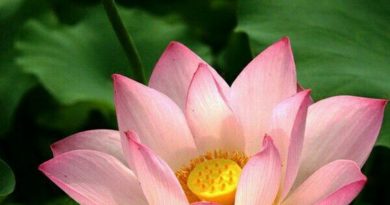DHAMMA PADETHA – 38. SEVEN QUALITIES OF A VIRTUOUS PERSON
DHAMMA PADETHA – SEVEN QUALITIES OF A VIRTUOUS PERSON
Those who are residing together with virtuous people are happy in this life and in sa½s±ra. Those who are living together with virtuous people are free from demerits and therefore happy. They also have opportunities to do merit and thus they will be happy in future lives. That is why, they themselves wish to be virtuous and also wish to live together with virtuous people and associate with them. They even pray that they may meet with virtuous people in their future existences.
Virtuous people from ancient times, like the Buddha-to-be, also pray that they may meet virtuous people. At one time, the Buddha-to-be Akitti Hermit was staying induced with the bliss of jh±na attainment near a tree. At the time the king of the celestials revered the Buddha-to-be hermit so much that he said ‘O Hermit, please make a wish’ and the Buddha-to-be Akitti Hermit replied:
(a) I do not wish to see fools. I wish to see wise and virtuous people;
(b) I do not wish to hear the voice of the fool I wish to hear the voice of wise and virtuous people;
(c) I do not wish to associate with fools. I wish to associate with wise virtuous people;
(d) I do not wish to converse with fools. I wish to converse with wise virtuous people; and
(e) I do not wish to be friendly with fools. I wish to be friendly with wise virtuous people.
Thus He said that He only wished to meet with virtuous people.
That is why, when He was enlightened and became the Buddha, He had discoursed on the seven qualities of a virtuous person so as to realize how to be a virtuous person and how to know whether a person is virtuous. These qualities are:
(1) Saddh± — faith, belief, confidence
(2) s²la— morality, to have control over physical and verbal actions
(3) Hiri — to be ashamed of doing unwholesome actions
(4) Ottappa— moral dread, to be fearful of doing unwholesome actions
(5) Suta — to have knowledge
(6) C±ga — generosity, to give charity
(7) Paññ± — to know the truth (An 2/398)
(1) Saddh±- faith means, faith in Buddha, dhamma, sangha, kamma and the results of kamma. It is a combination of two words belief and clarity. Belief is belief in the Buddha, dhamma, sangha, kamma and the results of kamrna. Clarity is clarity of the process of the mind. When you pay homage to the triple gems, when you are doing meritorious deeds, such as d±na, your mind is clear and feel delighted. That is because of saddh±.
Saddh± is the best basic factor to increase meritorious deeds, attain noble birth, in good destination (sugati) and finally reach nibb±na. That is why the Lord Buddha had said that saddh± is like a good friend, like the hand, like wealth and property, and like good seeds.
How it is like a good friend
Those who are travelling to other countries and other places which they have never been to, are in great need of a good friend. Because the good friend sends you to places you wish to get to, you reach there in happiness. In the same way, saddh± sends you to the higher planes you wish to get to. It also sends you to nibb±na. That is why saddh± is like a good friend, which is one of the qualities of a virtuous person.
How it is like the hand
The hand is the most useful for your body. It cleans any dirt and tries to arrange things that do not look good. It keeps by valuables, and things though not valuable but useful. Similarly, those who have saddh± which is like the hand, are able to do deeds of merit by doing d±na and gain d±na merit. By observing s²la , one can also gain s²lamerit By practising samatha vipassana meditation, one can also gain bhavana merit. That is why s±ddha is like the hand, which is one of the qualities of a virtuous person. (Am 2/304)
How it is like wealth and gems
Those who have wealth and property can have good food, clothing, vehicles, houses and buildings and live happily. Likewise, those who have s±ddha can enjoy the happiness of human life and deva life by giving d±na or charity and observing s²la. By practising samatha they can reach the realm of brahma and enjoy the happiness. That is why s±ddha is like gems and wealth, which is one of the qualities of a virtuous person. (Sam 1/216)
How it is like good seeds
Good seeds have two functions, which are going down as roots and going up as shoots and branches. With these two functions they make the trees grow and bear fruits and flowers. In the same way those who have s±ddha can observe s²la, which is like roots and practise samatha and vipassana, which are like shoots and branches. With these s²lamerit and samatha and vipassana merit they can attain nibb±na, which are like fruits and flowers. Therefore, s±ddha is like a good seed, which is one of the qualities of a virtuous person.
In this way, s±ddha, like a good friend, like the hand, like wealth, property and jewels, like good seeds, is one of the noble qualities of a virtuous person, and serves as a good foundation in gaining and cultivating merits, reaching good destinations and realizing the bliss of nibb±na.
(2) s²la- to have control over physical and verbal actions.
Refraining from taking life, refraining from taking what is not given, refraining from sexual misconduct, refraining from telling lies, refraining from intoxicants- this five precepts, and eight or nine precepts etc. are s²la.
Those who observe s²lasecurely, get five kinds of benefit which are:
(a) acquiring wealth and property easily and abundantly;
(b) having fame with good reputation;
(c) able to enter any kind of function happily without a sense of inferiority;
(d) while nearing death, seeing good signs and dying peacefully; and
(e) being reborn in the realms of the devas.
Those who practise meditation must have s²la and only if their s²la is spotless there can be sam±dhi. Only when there is sam±dhi, there occurs vipassana insight. Only when vipassana insight is complete, there will be magga and phala ñ±ºa. Only when there is magga and phala ñ±ºa you will reach nibb±na. Hence s²lais a good basic factor to reach nibb±na, which is one of the qualities of a virtuous person.
(3) Hiri – Moral shame; to be ashamed of doing demerits or unwholesome actions. Abstaining from killing, abstaining from stealing, abstaining from sexual misconduct, abstaining from false speech, slander, using harsh and abusive language, talking frivolously which is unbeneficial etc. To be ashamed of committing the ten unwholesome actions.
(4) Ottappa – Moral dread, fearing of committing immoral actions. To have fear of killing, stealing, committing sexual misconduct, speaking falsely, causing disharmony, speaking harshly using abusive language, talking frivolously which is unbeneficial. To have fear or moral dread in committing ten unwholesome actions.
Having distinctions in Hiri and Ottappa
A virtuous person reasons to himself. “I being a descendant of noble parents, an elderly person, courageous, a keeper of good and noble mind, endowed with knowledge, will be inappropriate in doing demerits”. Thus he reasons and is ashamed of doing unwholesome actions which is hiri.
A virtuous person reasons to himself, I fear to be despised by myself and by others, I fear to be punished by the law or ruler, I fear the danger of apaya and therefore am afraid of unwholesome actions, which is ottappa. In this way hiri differs from ottappa.
Hiri and ottappa are causes to have s²la securely. s²la is the cause of sam±dhi, sam±dhi is the cause of vipassan± insight. Vipassan± ñ±ºa is the cause of magga phala ñ±ºa. In this way hiri and ottappa are the causes of magga phala ñ±ºa step by step, they are qualities of a virtuous person.
(5) Suta – knowledge means:
To learn pitakas or scriptures discoursed by Lord Buddha and to understand them. Only if you comprehend them will you be able to practise correctly. Only if you can practise correctly or with the correct method will it be beneficial till you reach nibban±, which you have aspired for. That is why, to have suta is one of the qualities of a virtuous person.
Nowadays, having dhamma talks and listening to them, studying Buddhist scriptures are to have suta.
If you do not study the Pitakas, discoursed by Lord Buddha, and do not have suta, you will not understand the nature of dhamma and may misinterpret it. Those who have not learnt Abhidhamma may have wrong views.
For example: Avarice (macchariya) and wrong (kukkucca), and jealousy (issa) and macchariya, are wrongly interpreted.
Instead of saying macchariya for stinginess they use the word kukkucca wrongly.
To be jealous of other people’s richness which is issa they misuse the word macchariya.
Jealousy issa, must be eliminated by sympathetic joy (mudit±), stinginess (macchariya) must be eliminated by mett±. To be worried over unwholesome actions that have been done and wholesome actions that have not been done (kukkucca), must be eliminated by samatha and vipassana meditations.
(6) Caga -generosity, giving charity means:
Giving away to parents and relatives, to be charitable to the poor, the needy, and offering things to sangha, nuns and virtuous people.
Those who give charity have five benefits:
(a) loved and revered by other people;
(b) approached by virtuous people;
(c) famous with good reputation;
(d) entering into all kinds of audiences delightfully; These are the four benefits at present
(e) being reborn at the abode of the celestials after death.
Those who give charity, in every existence:
(a) live a long life i.e. longevity;
(b) possess beauty, good looks;
(c) happiness, materially and spiritually;
(d) having lots of attendants; and
(e) having authority/supremacy in every way, are the five benefits they get.
Motto: Longevity, good looks, happiness,
with lots of attendants and authority.
These are the five benefits of caga.
When entering sasana as a monk,
(a) having robes in abundance,
(b) having alms-food in abundance,
(c) having several monasteries and buildings,
(d) having medicines and requisites in abundance,
(e) loved and revered by monks residing together,
are also five benefits that shall be enjoyed.
Because of c±ga, giving charity, you have clarity of mind when practising meditation, which helps to attain jh±na magga, phala, and therefore, attain noble dhamma rapidly. That is why c±ga, giving charity, is one of the qualities of a virtuous person.
(7) Paññ± – knowing things truthfully means: To know whether it is the cause of suffering or not; to know whether it is the cause of happiness or not and whether it is beneficial in this life or not, and whether it is beneficial in future lives or not. Knowing these things is paññ±.
The paññ±, an ariya person must possess, is knowing the arising and passing of phenomena (Udayabbaya). What a puthujjana virtuous person must possess is Kammassakkata paññ±. Kammassakkata pññ± means to know that kamma is the only property one owns.
What you have acquired, gathered and saved up, in reality, is not your own. Even in this very life, floods, fire, tyrants, robbers and those who do not love you can destroy them. You cannot, by any means, take them to future existences. That is why wealth and property are not your own but owned by many.
The d±na merit you have done, s²la merit, bh±vana merit which you have practised, only these merits, will give you many kinds of benefits in a series of existences till you reach nibb±na. To know that these are your own property is known as kammmassakkata paññ±. Those who have kammassakkata paññ± and practise satipaµµh±na vipassan± meditation correctly or with the correct method, will reach nibb±na with magga phala ñ±ºa according to their paramis or perfection. That is why paññ± is one of the characteristics of a virtuous person.
If those, who have these seven characteristics or qualities of a virtuous person, practise satipaµµh±na vipassan± meditation, they will attain nibb±na with magga phala ñ±ºa according to their p±ram²s or perfection.
Sons and daughters of good parentage, who wish to attain magga-phala ñ±ºa and nibb±na must practise so as to be fully endowed with the seven qualities of a virtuous person and must also associate with people, who possess the seven qualities of a virtuous person.

